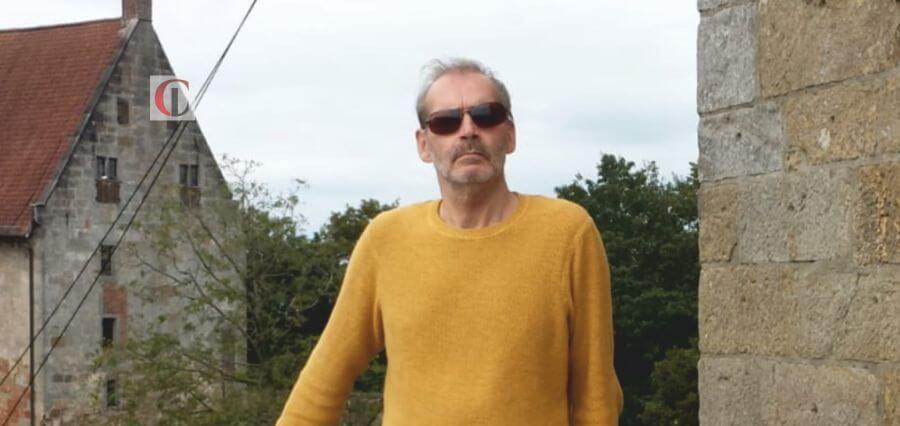In the early 1980s, Lord Hans Emile (ing. J. J. E.) van Essen set out on a mission that has shaped the trajectory of sustainability in profound ways. His journey began with the meticulous sizing of 45,000 houses for thermal and sound insulation near Amsterdam Schiphol airport in 1981. Recognizing a need for adept management guidance, he founded Essence SUM in 1988, addressing challenges at personal, social and business execution levels.
Venturing internationally, Lord van Essen developed a comprehensive model to address management complexities. His involvement with the architecture and healthcare sector of the Netherlands led to his impactful input reaching the United Nations. Subsequently, the UN sought his expertise for the education of healthcare professionals and engagement in poverty reduction and sustainability, culminating in the establishment of the World Sustainability Fund.
In 2011, Lord van Essen realized the inadequacy of existing plans to meet global needs for sustainability. Determined to do what was necessary, he founded the World Sustainability Fund, driven by the belief that sustainability is the engine for global economic growth and poverty reduction. Today, as the Founder and President of the World Sustainability Fund, Lord Hans Emile van Essen leads a non-profit organization dedicated to realizing the UN’s Sustainable Development Goals and addressing climate issues, humanitarian needs and prosperity promotion for future generations.
Let’s explore how Lorde van Essen is creating opportunities for the generations to come and being a catalyst for positive change!
Can you walk us through your journey and the pivotal moments that contributed to your growth as a business leader?
Looking back at my journey as a business leader, several specific periods shaped my path, being primarily a Chief Information Officer. So, I recognized early in life that I had different information than my surrounding friends and the public. I read conversations differently and got more feedback from inside. This made me curious, and at 22, Super Study helped to cure my hunger for information. In 1977, two years earlier, the first tabletop PC came on the market, which helped me to build my own info-set.
Fast forwarding to my 30, I retired from my family company’s board membership to start a consultancy firm, Essence SUM. Then, my Information Stream exploded literally, equally to my intuition for the integral needs of my customers. Directors, I conclude, tend to have in their business the same problems as at home and in their soul.
I discovered business types and personalities, clustering the same issues. Ten years later my vision of health, medicine and prevention arrived at the UN WHO, proposing Global Integrative Medicine Centres for Treatment and Education. UN contacts asked me to write proposals for poverty alleviation and more.
At 50, in 2007 I arrived at UN Agenda development and built a Direct Response IT tool to support all Countries and Major Groups to comment without delay on the General Assembly and all other Sustainable development meetings. It contained all email addresses from Kings, Presidents, Country Ambassadors to the UN, Ministers, NGO leaders, and more. This improved the discussions and negotiations dramatically. It supported the composition of the UN Paris Agenda 2015-2030 and is still active. In 2011 I founded the Foundation World Sustainability Fund to deliver blueprints for implementation of the Sustainable Development Goals. We are now in the centre of the market and growing year after year in relevance.
Could you provide insights into the mission and vision of the World Sustainability Fund, and how the organization actively fosters initiatives for global sustainability?
World Sustainability Fund is a global organization that facilitates initiatives that contribute to sustainable life. We are transparent in our actions and in how we provide structure for our organization and relations. We act out of compassion for every life form and every individual.
Also, we communicate with respect for each other and clarity in our message. Finally, we add value by connecting to what is needed and by providing customized support, mainly with our country program implementing clean methodologies to achieve the UN Goals.
How has your market expertise translated into impactful contributions through your work and how are you leveraging technological advancements to company’s solutions?
WSF contributed to the global discussion with the delivery of ‘Ten New Sustainable Human Rights,’ defining Global Layers of Sustainability—The Global Agenda Shift and ‘160% Wearth Labour.’ The economic impact is in trillions.
In terms of technological advancements, by constant research and participation in development and implementation we are 5 to 10 years ahead of the average players in the market. Prime sources are YouTube, UNFCCC, The GEF, and Gold Standard. The field of science and technology is our home and AI is in the family.
How do you see your long-term role evolving and what are the future objectives you aim to achieve for your company?
Now at around 67, I will spend more time on Global Risk Research—Global Debt, Economic Life Cycle finance and Interest impact. In two years, the World Sustainability Fund will prepare for building a team to deliver input and organization for the UN Agenda 2030-2040. AI, Peace and Education will most likely be at the core of planning. In the meantime, we keep growing the realization of the present Agenda. Nature is slow. To balance human impact is our first concern.
What would be your advice to budding leaders who aspire to venture into the sustainability sector?
To become a venture leader in sustainability, the ethic is to be right and eager to learn. Build a relevant production and learning organization. Use Holacracy as management model. It inspires and aligns you with the speed of present-day business reality.
Go in nature for at least one month with only the most needed support, so you can become one and experience its wealth. Be honest with yourself and interested in what you really like to achieve. This market is not for everybody. But recognize the truth and adjust yourself to life as it can be as beautiful as a flower and a tree.
How do you foster a culture of innovation within your company and what role has innovation played in continued growth and success?
Fostering a culture of innovation in our Fund find is programmed in our Balance Scorecard at the Value Quarter, which was originally the finance department. The Value Quarter targets besides financial profit, also impact on planet, people and progress.
Having this, you become aware that it needs the support of like-minded labor, work floor arrangement and technology input. Benchmarking keeps you in reality. The company grows if you get this right.
Can you share an instance where you encountered a significant obstacle and how you navigated through it, drawing upon your leadership skills and resilience?
If you have everything right then you face the counterparts in the market, especially when you plan and perform high-end. World Sustainability Fund, planning both for impact and for re-investing profit in Reserves for Humanitarian Aid. Traditional industries challenged us a lot, by infiltration, disruption and lately copying our activities and cherry-picking our success factors. But, being immune to distraction, developing our own vaccinations and being happy with their cherry-picking. What they do right, we don’t have to do.
Club of Rome published his first statement in 1972. Being 15 years young, it had a big impact on me. Studying Construction and later Architecture, sustainability was part of the study. But the impact was near zero to negative. I was happy in 1990 to take part in the first Dutch National Centre for ‘Gezond Bouwen en Wonen’—Healthy Building and Living. In the same year, we founded The European Foundation for Healthy Building and Living.
How do you envision the company evolving to meet the demands of the ever-changing business landscape while staying true to its core values?
I believe the company will grow like a supernova in the next ten years and for thirty years more, without the need to change policy. There will come more zero-cost Internet of things, digital medicines, nature restoration robotics, an equal share of labor, and plenty of new technologies. To show you some upcoming markets. Also, politics stays for enormous reorganization.
This year a study about ‘suitable and competent‘ was published for Dutch political participants. Complete with tests, education programs, historic evaluation, and future visions. Like we are now ‘Cleaning Climate’, in the next decennium humanity will ‘Purify Politics.’ The International Court of Justice faces a new task. Humanity and business will thrive as never before.




